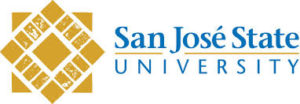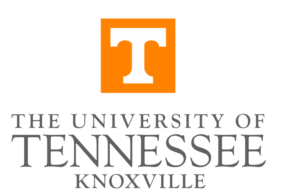
For working adults who long for a career change, an online library and information science degree program could be an ideal choice. Library science is light-years away from dusty shelves and card catalogs (though you can have that too, if it’s your thing). Today library and information science are intimately combined, and an online program makes a lot of sense for students to learn the digital skills and expertise that are central to the occupation. From archives to data analytics, there’s a lot of potential in library and information science.
Earning your library and information science degree online gives you the flexibility that just isn’t possible with an on-ground program. You can study wherever it’s convenient, as long as you have a reliable Internet connection. If you have irregular work hours or family responsibilities that make it difficult to attend school in-person, remote learning brings the classroom to you.
Methodology: Ranking the Best Online Library and Information Science Degrees
Bachelor’s Degree Center editors feature only accredited, reputable colleges and universities for the BDC ranking of the best online library and information science programs. We have ranked programs by their tuition, student reviews, and alumni salary, using publicly-available data from IPEDS and Niche.
1. University of Wisconsin

The University of Wisconsin’s Information Studies School offers a Bachelor of Science (BS) degree in Science & Technology that is recognized among Wisconsin’s best online library science degrees. UW Madison’s baccalaureate degree in library science offers a flexible curriculum that is competency-based. Degree candidates enrolled in this bachelor’s in library science must complete 120 semester credits, including these core requirements – databases information retrieval systems, knowledge organization for information science, and human factors in information seeking, plus a capstone project.
Founded in the late 1840s, the University of Wisconsin is the flagship institution of higher learning of the state with a student population that exceeds 44,250 students. In addition, UW Madison is a land-grant and sea-grant school and home to the first public library system in Wisconsin.
What We Like: the University of Wisconsin’s campus is situated along Lake Mendota, with a 1,000+ acre arboretum located nearby.
Degree: BS in Information Science and Technology
University of Wisconsin BS in Information Science and Technology
2. Arizona State University

The Geographical Sciences & Urban Planning School at Arizona State University offers a BS in Geographic Information Science that prepares students for practical applications of GIS technology across a range of topics. Arizona State University’s best online library science degrees require degree candidates to finish 120 semester credits across 40 classes. Classes for this baccalaureate degree include geographic information science, statistics for planning, and principles of programming, to name a few.
Arizona State University was established in the mid-1880s prior to Arizona becoming a state. Operating multiple campuses in the great Tempe metropolitan area, Arizona State’s total student population now exceeds 90,000, when including campus-based and online students (about 40% of all students).
What We Like: Arizona State University offers students more than 335 academic degree options from its seventeen colleges/schools.
Degree: BS in Geographic Information Science
Arizona State University BS in Geographic Information Science
3. University of Oklahoma

The University of Oklahoma’s School of Library and Information Studies (UO) offers two of the state’s best online library science degrees with its Bachelor of Science in Information Studies or Bachelor of Arts in Information Studies & Technology. The BS library science degree requires the complete 120 semester credits, of which 45 must be pulled from the library science curriculum. The BA in information studies prepares students for rewarding careers that create, use, and transfer knowledge across disciplines. Students graduate from UO’s online library science degrees and enter the workforce as network administrators, information technology specialists, or information technology security analysts, among others.
The University of Oklahoma operates as the state’s flagship research higher learning institution that was found in the late 1800s when Oklahoma had yet to become a state. More than 28,150 students attend classes at UO.
What We Like: The university offers language classes in Native American languages, including Kiowa, Muscogee Creek, Cherokee, and Choctaw.
Degree: BA or BS in Information Studies
BS in Information Studies or BA in Information Studies & Technology
4. University of North Texas

The Information College at the University of North Texas offers an online BS in Information Science (BSIS) that provides students several related concentrations – project/knowledge management, information, and health informatics, digital content, information science and knowledge organization, data science and human language technology. Students enrolled in the University of North Texas’s best online library science degrees must complete a minimum of 120 semester credits across forty classes. Coursework covers the areas of information systems, information seeking/use, information architecture, and knowledge management, to name a few.
Founded in the late 1800s as a state-funded teacher’s training school prior to Texas being adopted as a state about a decade later, the University of North Texas is now a multiple-campus school that serves more than 40,350 students.
What We Like: UNT’s library science programs have been operating since the 1970s.
Degree: BS in Information Science
University of North Texas BS in Information Science
5. San Jose State University

San Jose State University’s School of Information offers a Bachelor of Science (BS) degree program in Information Science and Data Analytics (BSISDA) that is among the west coast’s best online library science degrees. SJ State’s online bachelor’s degree in library science offers several academic road maps over a two, three, and four-year period. Classes for San Jose State University’s library science major include technology, culture & society, information & data science, information security, and pricey, security, and ethics, to name a few.
Founded in the mid-1850s as a state-run normal school that operated in the evenings exclusively, San Jose State University’s urban campus serves Silicon Valley and more than 32,850 students. The university is a foundation member of the state’s university system.
What We Like: San Jose State University holds the distinction of being the oldest public school on the west coast.
Degree: BS in Information Science and Data Analytics
San Jose State University BS in Information Science and Data Analytics
6. University of Nebraska Omaha

The University of Nebraska Omaha offers a BS in Education — Library Science that can be completed fully online. UN Omaha’s best online library science degrees require students to finish 120 semester units in classes that include digital citizenship, organization of information, reference resources & services, and children’s literature/education, plus a practicum, among others. Students graduate from UN’s online bachelor’s in library science to find rewarding work as a law librarian, academic librarian, media archivist, or technology coordinator, to name a few.
Established as a land grant school in 1869, the University of Nebraska at Omaha is now considered the oldest of public universities in the state of Nebraska. As the flagship campus of the university system, UN serves as a space-grant school with a student enrollment of more than 25,650 students.
What We Like: The University of Nebraska operates two campuses that cover more than 600 acres.
Degree: BS in Education — Library Science
University of Nebraska Omaha BS in Education — Library Science
7. University of Arizona Global Campus

The University of Arizona Global Campus offers a BA in Library Science and Media that is available 100% online. UA Global Campus’s best online library science degrees require the completion of 120 semester units, of which 33 credits are classes from the library science curriculum. UA’s Global Campus offers a generous transfer credit policy that allows for up to 90 semester units. Additionally, this baccalaureate degree in library science and media offers five academic concentrations 0 public relations, cognitive studies, environmental management, public administration, and mobile app/web technology.
The University of Arizona Global Campus was established when UA acquired Ashford University. This California-based online school serves more than 32,450 students.
What We Like: The school operates five colleges/schools that offer degrees in business, education health, liberal arts, and an honors program.
Degree: Bachelor of Arts in Library Science and Media
University of Arizona Global Campus BA in Library Science and Media
8. University of Southern Mississippi

The University of Southern Mississippi offers a BS in Library and Information Science degree that is available online with accelerated academic paths for those students interested in finishing their degree in as little as two years. USM’s best online library science degrees require students to complete a practicum (in the student’s vicinity) in addition to 120 semester units. Graduates of the University of Southern Mississippi’s library science bachelor’s degree enter the workforce as public librarians, branch library managers, or library technicians, among other options.
Established as a teacher’s school in 1910, the University of Southern Mississippi (USM) is a public multi-campus university with a student enrollment of approximately 14,450 students.
What We Like: Parts of Southern Miss’s campuses are a part of the historic register.
Degree: Library and Information Science (BS)
University of Southern Mississippi BS in Library and Information Science
9. Penn State World Campus

Penn State World Campus offers a BS in Information Science and Technology that is recognized among the best online library science degrees available in the marketplace. Degree candidates enrolled in PS World Campus’s nationally ranked bachelor’s degree in library science are required to complete at least 125 credits units to graduate. Students may opt for a customized degree that includes integration and application, with 84 specific credits prescribed from the library science major’s curriculum.
Launched in the late 1990s, Penn State World Campus is the distance-learning platform of Pennsylvania State University. Nearly 15,000 students attend classes offered by Penn State’s online learning school.
What We Like: Many of the Penn State World Campus’s online degree programs are nationally ranked – many in the top ten of all online degrees.
Degree: BS Information Science and Technology
Penn State World Campus BS in Information Science and Technology
10. Northern Kentucky University

Northern Kentucky University’s Informatics College offers a BS in Library Informatics (LI) that can be completed 100% online. Classes for Northern Kentucky University’s best online library science degrees include digital searching interfaces, information literacy, and introduction to application development, plus a senior capstone project, among others. NKU’s baccalaureate degree in library science integrates the fundamentals of the access and the organization of information. Students typically complete this bachelor’s degree in about four years, on average.
Established in the late 1960s as a public institution of higher learning, Northern Kentucky University is also a space-grant school with a student population of approximately 14,250 students. NKU is the youngest member school of the state’s university system.
What We Like: NKU’s College of Informatics is one of the most notable divisions in the university.
Degree: BS in Library Informatics
11. University of Kentucky

The University of Kentucky’s Communication and Information College offers an Information Communication Technology Completion (ICT) academic track that can be completed entirely online. UKY’s best online library science degrees can be completed in two or three years, with the transfer of eligible credits of sixty hours. Classes for the University of Kentucky’s baccalaureate library science degree program include information literacy and critical thinking, data detectives, human relations and technology, information architecture, introduction to databases, human relations and technology, semantic web development, introduction to information science, and exploring ICTs, plus an internship, to name a few.
Established in the mid-1860s under the Morrill Land Grant Act, the University of Kentucky is also the state’s flagship school, with Kentucky’s largest student enrollment of approximately 30,250 students.
What We Like: UKY maintains fifteen libraries across the school’s academic facilities.
Degree: Information Communication Technology Completion
University of Kentucky Information Communication Technology Completion
12. University of Tennessee Knoxville

The Communication & Information College at the University of Tennessee Knoxville offers a BS in Information Sciences that offers students three academic tracks – UXD – User Experience Design, the DIMA track – Data, information management & Analytics or a general track, which can be customized to meet a student’s academic objectives. UT Knoxville’s best online library science degrees prepare graduates for careers as data analysts, metadata specialists, and information managers, among others. Core coursework for all concentrations includes foundations of information sciences, user-centered design, and programming for information professionals, to name a few.
The Knoxville campus at the University of Tennessee was established a few years before Tennessee became a state in 1794. Originally name Blount College, UTK is now a research and land grant school that serves as the state’s flagship campus.
What We Like: The University of Tennessee is ranked among the top 55 public universities in the nation.
Degree: BS in Information Sciences
University of Tennessee Knoxville BS in Information Sciences
13. Bowling Green State University

Bowling Green State University offers a BS in Information Sciences (BSIS) that offers degree candidates six start dates each year. Students enrolled in Bowling Green State University’s best online library science degrees have three academic tracks from which to choose –, Internet & Information Studies, Business, or Training & Development. BGSU is a military-friendly school and a member school of the AU-ABC. This program has received accreditation from ATMAE and can be completed in 2.5 to 3 years.
Established in 1910 as a teacher’s training institute, Bowling Green State University is a multi-campus university with campuses in Ohio. The total student enrollment across all campuses is approximately 20,150 students.
What We Like: The initial enrollment at Bowling Green State University was about 300, with students from as far away as New York.
Degree: BS in Management and Technology — Internet and Information Studies
Bowling Green State University BS in Information Sciences
14. Clarion University

Clarion University’s Library Science Department offers a BS in Integrative Studies with an academic concentration in Library & Information Studies that is recognized among Pennsylvania’s best online library science degrees. Students enrolled in Clarion University’s baccalaureate library science degree program are required to complete 120 semester units, which are available entirely online. For students seeking to accelerate this program, Clarion allows for up to 18 credits to be taken each semester. Many students enrolled in Clarion’s program choose to pursue the school’s graduate degree in library science.
Founded in 1867, Clarion University is a member school (one of fourteen schools) of the state’s higher education system. More than 5,250 students attend classes offered on the school’s 200-acre+ rural campus or online.
What We Like: Clarion University was originally founded as a seminary to serve the needs of western PA.
Degree: BS in Integrative Studies — Library & Information Studies
Clarion University BS in Integrative Studies
15. University of Maine at Augusta

The University of Maine at Augusta offers a BS in Information & Library Science (ILS) that requires library science degree candidates, to complete 120 semester credits, which are available online. UM Augusta’s best online library science degrees have received accreditation from NEACS and require no on-campus visits to meet graduation requirements. UMA’s baccalaureate library science degree offers students the flexibility of asynchronous coursework, in addition, to live classes.
The Augusta campus at the University of Maine (UMA) was established in the mid 1960s and is a member of the state of Maine’s university system. Approximately 5,950 students attend classes online and on the school’s urban campus in Augusta.
What We Like: UM Augusta was founded by Maine’s legislature in its 102nd session, originally as a division of the UA specializing in continuing education.
Degree: Information & Library Science, BS
University of Maine at Augusta BS in Information & Library Science
Why Should I Get My Library and Information Science Degree Online?
In most cases, getting your library and information science degree online gives you more scheduling leeway than a traditional course. You can complete assignments at the times that work best for you. Plus, you save time (and money) by not having to commute to and from school. Some online library and information science degree programs allow for self-paced study, provided you complete everything by the end of the semester. Thus, you don’t have to worry about missing class and falling behind. Online courses are an especially good fit for people who want to remain in their current job while pursuing a degree or certification.
For many students, enrolling in library information and science degree programs online gives them most of the benefits of going to school on-campus. A quality course should give you plenty of opportunities to reach out to your instructors when you have questions. Students should have access to services such as career advising and job placement assistance. Additionally, many virtual programs offer forums and social media groups, allowing students to connect with one another to create a sense of community.
Depending on where you decide to attend, it may be cheaper to pursue a degree in library and information science online. Even if costs are comparable to an on-site program far from home, you can still save on relocation expenses.
What Can I Do with a Library and Information Science Degree?
There are more information science degree jobs than you might think. So just what jobs can you get with an information science degree? If you’ve asked yourself, “What can I do with a degree in library and information science?”, here are some career possibilities to consider:
- School librarian
- Law librarian
- Information librarian
- Emerging technology librarian
- Academic librarian
- Data curator
Of course, this short list of information science degree jobs is not exhaustive. Other lesser-known career opportunities include corporate taxonomist, data analyst, verb content analyst, UX designer, and digital archivist. Many of these are bachelor of library and information science jobs, but some require a master’s degree. A number of library and information science degree jobs are available in both the private and public sectors. In the private sector, you could land employment in a variety of organizations and businesses — from large corporations to local non-profits.
How Much Can I Make with a Library and Information Science Degree?
According to PayScale, the average library sciences salary for someone with a bachelor’s degree in the field is $57,000. As you might expect, library science salaries may run higher for those with a master’s degree. Those with a bachelor’s degree in the field are likely to earn an information science salary consistent with a clerical or assistant-type position.
A library science degree salary can also vary based on where you’re employed. The US Bureau of Labor Statistics reports that library science salaries tend to be higher at the university level. You can earn a library science jobs salary in many settings — government entities, hospitals, and other information services. As is the case in other areas, your library science salary can increase as you gain more experience. In time, you may find yourself in the running for supervisory and management positions, in which you can be paid a considerably higher information science salary.
The BLS reports that in May 2019, there were 19,500 people employed as librarians at colleges, universities, and professional schools, while another 4,820 worked at community colleges. At the post-secondary level, librarians can expect to help students with research projects, keep track of assets, and assist faculty with some of their day-to-day tasks. The median library science degree salary in academia was $68,480 for colleges, universities, and professional schools, and $66,680 for community colleges.
School librarians working with K‑12 students wear many hats, as they introduce children to literature and research methods and help teachers integrate technology into the classroom. In fact, with the rapid growth of digitization a new “brand” of school librarian is in high demand — library media specialist. These people frequently land positions in elementary and secondary skills, putting their tech-savvy skills to use every day. In May 2019, the median library science degree for media specialists was $59,500.
You can expect to earn a median library science degree salary of $52,520 at a local public library. Other, less common places of employment for library science degree-holders are “information libraries”, where they serve as curators or archivists in hospitals, museums, law librarians, and less “traditional” settings. They earn a median library science degree salary of $56,370.
Related Rankings:
15 Best Bachelor’s in Library and Information Science
